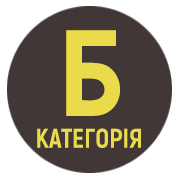FRENCH COLLOQUIAL MEANS EXPRESSING EVALUATION IN CHARACTER SPEECH IN UKRAINIAN TRANSLATION
DOI:
https://doi.org/10.32782/folium/2023.3.3Keywords:
axiologeme, translation substitutions, conversational units, translation adequacy, pejorative, connotation, evaluative functioningAbstract
The article examines the question of the evaluative functioning of French colloquial units in the character’s speech and their rendering in the translation space. The study is focused on preserving the French fiction text colloquial component evaluative charge by the Ukrainian analogues in the target text. It has been established that the translation substitutions neutralizing the evaluative marking of the colloquial elements in the Ukrainian translation of A. Martin-Lugand’s novel “Happy People Read Books and Drink Coffee” are not lexically dominant. A factor that contributes to this situation at the lexical level is the progressive colloquialization of Ukrainian translations of French prose with a significant saturation of low colloquial vocabulary. The contribution of a particular translator in expanding the range of translation methods to preserve the oral and colloquial nature of source texts filled nonstandard lexical elements with evaluative charge is evaluated. The obvious pejorative nature of the original colloquialisms requires the translator an adequate equivalent to reproduce its bright evaluative shade of a feature of an object or phenomenon, especially if it complements the characters extremely emotional communication in a fiction text. The predominance of negative evaluation in the semantics of French colloquial axiologemes and their Ukrainian translation equivalents is proved, but there is also a positive connotative load of colloquial word forms both in the original and in the translation. A probable set of translation methods and techniques for preserving the evaluative component of the French colloquial units semantics in Ukrainian translation is determined. The prospects for the development of methods in translating the multi-register nature colloquial elements in the Franco-Ukrainian interlanguage space are outlined.
References
Білас А.А. Стратегії відтворення емоційно-експресивної функції знижених розмовних одиниць в українському перекладі роману Е.-Е. Шмітта «Оскар і рожева пані». Наукові записки Національного університету «Острозька академія». Сер. : Філологічна. 2014. Вип. 45. С. 191–195.
Білас А.А. Словник французької арготичної і просторічної лексики. Івано-Франківськ : Видавець Третяк І.Я. 2010. 176 с.
Буяр І.Є. Лінгвістична категорія оцінки: оцінювання досягнутого у вітчизняній лінгвістиці. Наукові записки Національного університету «Острозька академія». Сер. : Філологічна. 2009. Вип. 11. С. 145–149.
Дейна Л.В. Огляд тенденцій дослідження лінгвістичної категорії оцінки. Наукові праці Чорноморського державного університету імені Петра Могили комплексу “Києво-Могилянська академія”. Сер. : Філологія. Мовознавство. 2014. Т. 221, Вип. 209. С. 20–23.
Мартен-Люган А. Щасливі люди читають книжки і п’ють каву (роман). (Переклад з фр. Леоніда Кононовича). Львів : Видавництво Старого Лева, 2017. 160 с.
Сайко М. Особливості відтворення пейоративної лексики у перекладі субтитрів до німецькомовних кінофільмів. Мовні і концептуальні картини світу. 2015. Вип. 2. С. 133–144.
Тимняк З.С., Гаврилів О.І. Особливості перекладу особових пейоративів (на прикладі німецької та української мов). Іноземна філологія. 2017. Вип. 130. С. 98–108.
Федорова Л. Категорія оцінки: до проблеми становлення та вираження в слові: на матеріалі метафор газетно-журнальної періодики. Українська мова. 2013. № 1. С. 115–121.
Шатілова О.С. Оцінність як інтенційна категорія публіцистичного тексту. Науковий вісник Міжнародного гуманітарного університету. Серія : Філологія. 2016. Вип. 20(1). С. 48–50.
Bilas A. Psycholinguistic Aspect of Phonetic and Orthographic Means of French Colloquial Speech in Ukrainian Translation. Psycholinguistics, 2020, 27(2), P. 71–89.
Centre National de Ressources Textuelles et Lexicales. URL: https://www.cnrtl.fr/definition/.
Çepik Ş. Positive, Neutral, Negative Evaluation in Connotation. IBSU Scientific Journal, [S.l.], v. 1, n. 1, 2006. P. 144–147.
Jurko P. Evaluative Meaning in Translation. ELOPE: English Language Overseas Perspectives and Enquiries, 2015, 12(2), P. 193–209. URL: https://doi.org/10.4312/elope.12.2.193-209.
Martin-Lugand A. Les gens heureux lisent et boivent du café. Paris : Édition Michel Lafon. 2013. URL: https://royallib.com/book/MartinLugand_Agns/les_gens_heureux_lisent_et_boivent_du_caf.html.
Morley J., Partington A. A Few Frequently Asked Questions about Semantic – or Evaluative – Prosody. International Journal of Corpus Linguistics, 2009, 14, P. 139–58. URL: https://doi.org/10.1075/ijcl.14.2.01mor.
Philip G. Why prosodies aren’t always present: Insights into the idiom principle. M. Mahlberg, V. González-Díaz; C. Smith (eds) Proceedings of the Corpus Linguistics Conference CL2009, Liverpool: University of Liverpool, 2010. URL: https://u-pad.unimc.it/retrieve/handle/11393/62197/1691/2010_Why_prosodies_arent_present.pdf.










